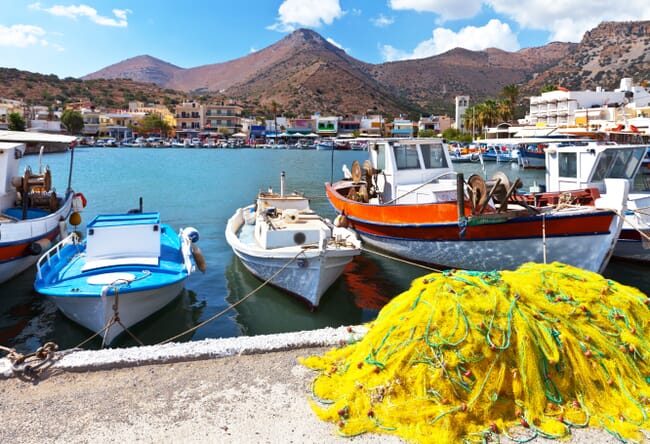
A new programme organised between the FAO General Fisheries Commission for the Mediterranean (GFCM) and the Greek NGO New Agriculture New Generation seeks to give a boost to small-scale aquaculture producers in the southeastern Mediterranean.
The programme combines classroom training, field visits and tailor-made coaching sessions, aiming to support the sustainable growth of small-scale aquaculture in the southeastern Mediterranean by providing producers with business, marketing and entrepreneurial insights. The participants were selected, based on specific sustainability criteria, through an open call launched in Algeria, Egypt, Lebanon, Morocco and Tunisia.
“Small-scale aquaculture is an integral part of Mediterranean heritage and contributes significantly to the Mediterranean diet. It is crucial to support and modernise farming tools to ensure the well-being of farmers, aquatic species and the environment,” said Houssam Hamza, GFCM aquaculture officer, in a press release.
The programme kicked off in June with an event held in Athens, during which Maria Damanaki, former European Commissioner for Maritime Affairs and Fisheries, highlighted the importance of aquaculture for future food security and lauded initiatives that develop capacity and skills for farmers in the region.
During this phase of the programme, participants attended a series of training workshops on strategy, innovation, sustainability, technological trends, marketing and sales. They learned about various techniques and practices in the region, exchanged ideas and plans, and visited modern aquaculture and aquaponic units and research laboratories to gain insights into Greek expertise in the sector.
“Participating in this programme has been a transformative experience, as it provided numerous insights for growth and development,” said Massaad Ejbeh, a producer from Lebanon.
“The visit to the marine fish farms revealed the significant potential for cultivating red seabream, which opens new avenues for expanding our product range. Back home I am planning to develop a recirculating aquaculture system for red seabream, which will be a significant step forward in enhancing our production efficiently and sustainably,” he explained.
Going forward, participants in the programme will receive tailor-made coaching in their countries on how to best grow their businesses sustainably, and it is hoped that the success of the programme will lead to its implementation in other parts of the region.




